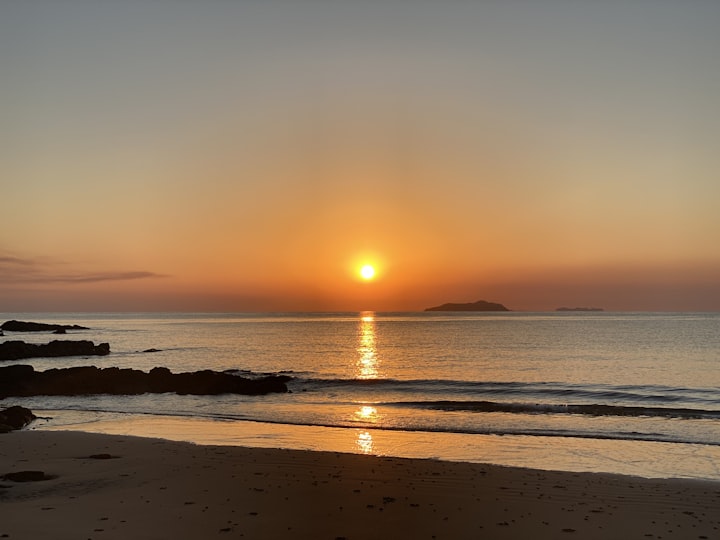Do You Think the Sun Is a Big Star?
If you do, then this short article should change your mind.

Here are four of my short-form stories. I hope you find them interesting and educational. Enjoy.
<><><>
British spelling.
1/4
Our local star the sun.
When we look up at the sky, the sun seems to be the same size as the moon, but that is just an illusion, the moon is close to our planet and the sun is very far away.
The Sun is almost 1.4 million kilometres in diameter, but a hypergiant star named UY Scuti is arguably the largest star known at this time.
Imagine the Sun 1,700 times wider, or maybe this is a better way to explain the size of UY Scuti; Hypothetically, if we placed that gigantic star in the same position as the Sun, how would it look from the Earth?
Well, to put it simply, you would not see it; the rocky planets Mercury, Venus, Earth, and Mars would all be inside UY Scuti, and even the distant gas giant Jupiter would also be inside that incredible star.
<><><>
2/4

Regarding life, could we be alone in the universe?
That profound question is often asked.
But unfortunately, it's not a question that can be answered at this time.
The universe is thought to hold two trillion galaxies, each made up of billions of star systems. With recent research, we can now be confident that most stars will have orbiting planets.
We can only imagine the staggering number of planets there must be out there in the unknown.
Surely our planet Earth cannot be the only one to harbour life. But what about intelligent life? Although highly unlikely, the answer could be no.
Due to the vast distances involved, we might never know for sure if we are indeed alone in the universe.
Being denied a definite answer can be frustrating for so many people.
<><><>
3/4

Our amazing world is teeming with millions of species of plants and animals, but why?
I am certainly not an expert on the Bible, but when it was written, it said that God created the universe and the earth in 6 days, and their age is roughly 6,000 years.
Could a day mentioned in the Bible be longer than the 24 hours we are accustomed to?
Scientists tell us that the universe burst into existence 13.8 billion years ago and that the Earth is roughly 4.5 billion years old.
It is estimated that primitive life forms have been living on our planet for well over 3.5 billion years.
Is god or evolution the reason? What are your thoughts?
Will we ever know for sure?
<><><>
4/4

Why does the Earth not fall into the sun?
The Earth is roughly 150 million kilometres from the Sun and stays at that distance, but why?
You would think that the gravitational force of the sun would pull the Earth closer, but no. Hypothetically, if the Earth moved closer to the Sun, its orbital speed would increase.
Mercury is the closest planet to the Sun and therefore has the fastest orbital speed of all the planets.
The Earth is racing around the Sun at 107,000 kilometres per hour and is always falling towards the Sun, but the sideways momentum keeps it at a safe distance.
The Earth is orbiting in the vacuum of space, so there is nothing to slow it down.
Imagine if the Earth came to a complete stop in its orbit; it would immediately start on its death dive towards the Sun.
That fatal journey would take roughly 2 months.
But don’t worry, it can’t happen.
The end.
<><><>
You may find my easy-to-understand stories about the universe and life interesting and educational.
Subscribe to me for free, and you will see my latest stories. Enjoy.
About the Creator
A B Forbes
Someone with a lifelong passion for that gargantuan area we call the universe. I also write stories about life itself. Enjoy






Comments
There are no comments for this story
Be the first to respond and start the conversation.